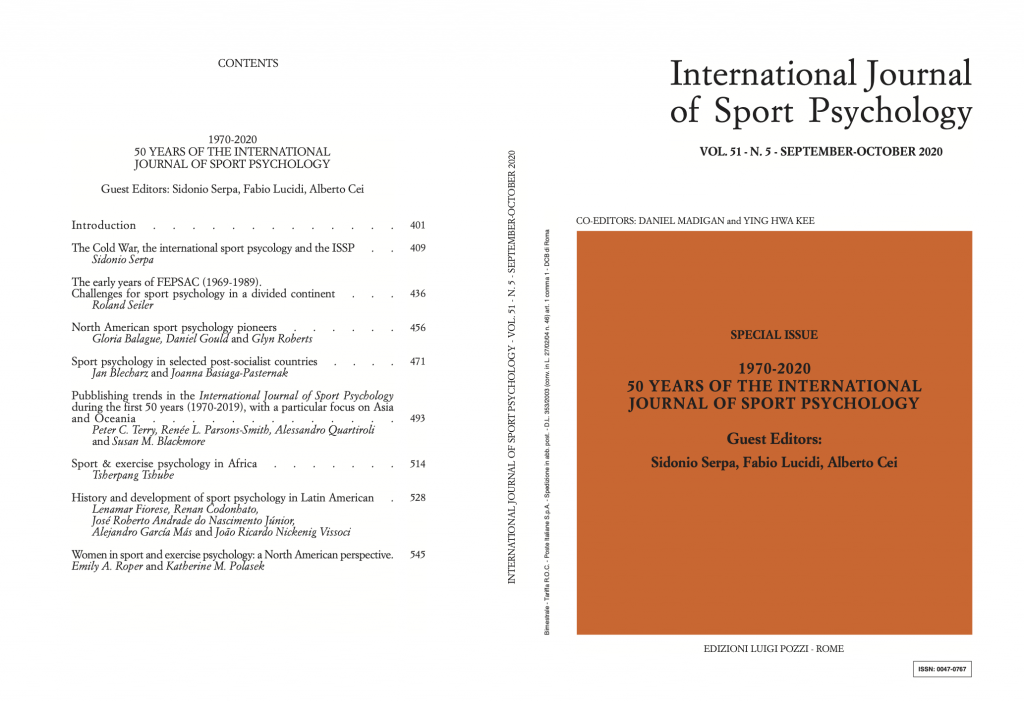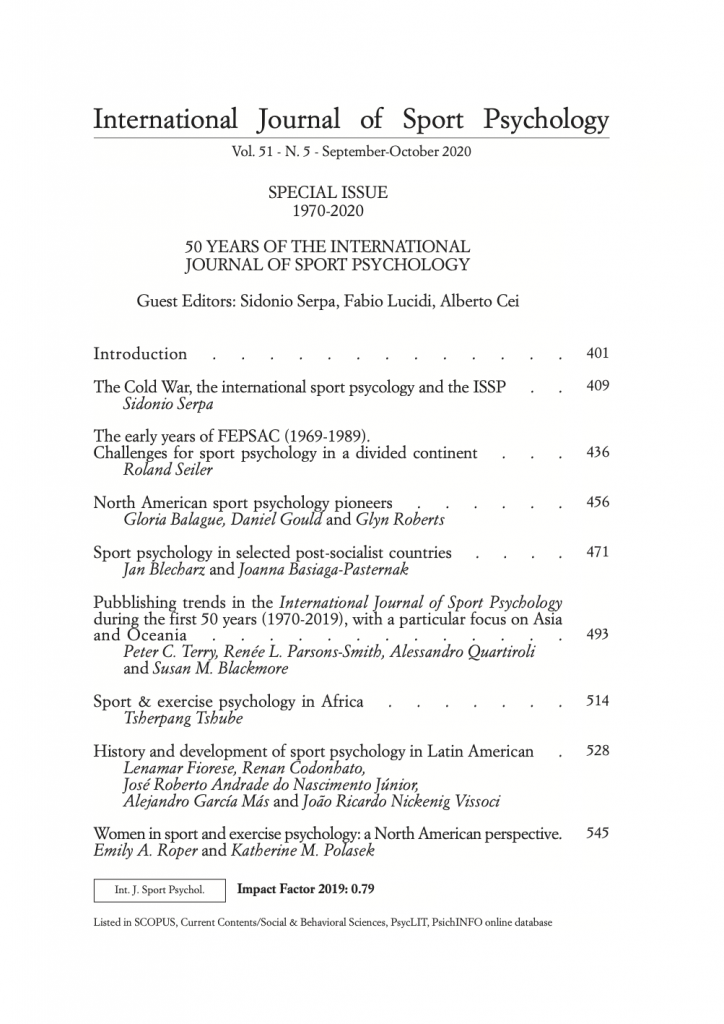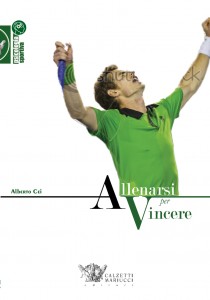Movimento
Rivista di Psicologia e Scienze del Movimento e dello Sport
n.2/3, 2016, 63 pagine
Roma: Edizioni Luigi Pozzi
Lo sviluppo motorio e psicosociale in bambini con disabilità intellettive attraverso il calcio
Motor and psychosocial development in children with intellectual disabilities through soccer
Alberto Cei*’, Paolo Franceschi^, Michele Rosci^, Daniela Sepio’ e Bruno Ruscello°
*Università San Raffaele, Roma e ASD Calcio Integrato
^AS Roma Calcio
‘ASD Calcio Integrato
°Università di Tor Vergata, Roma
Parole chiave: bambini, autismo, calcio, apprendimento, empowerment
Key words: children, autism, soccer, learning, empowerment
Abstract
Calcio Insieme (Soccer Together) is a project promoted by Roma Cares Foundation, non-profit organization linked to the broader context of Social Responsibility and Sustainability of AS ROMA and A.S.D. Accademia di Calcio Integrato, whose objective is the development of education and culture integrated to the values of sport through the soccer.
Soccer is the sport most loved and practiced by girls and boys around the world, but for young people with developmental difficulties are rare, if not absent, the opportunities allowing them to live this sport as an educational and playful experience. Therefore, this applied research project, spread over three years, is aimed at children (6-12 years) with intellectual disabilities and with particular reference to those with autism spectrum disorder (ASD). Soccer Together project wants to promote the physical activity and soccer teaching for these children, in order to improve the quality of their lives through a continuous sport practice over time. Furthermore, this project wants also to develop a methodology model of teaching, tailored for these children, through this applied research.
Soccer Together began in September 2015 with the collaboration of some schools of Roma. They promoted among families of children with intellectual disabilities the knowledge of this initiative. They organized information meetings lead by the staff of Soccer Together to start building a community whose school, family, sport organization and staff could feel part of a common project at its center there are the children with intellectual disabilities and especially those with autism spectrum disorder (ASD). Since the beginning the project has had as main focus the empowerment of each child through the soccer, as recommended by the International Paralympic Committee.
To better understand the different steps of the experiment carried out by the technical-scientific staff of Soccer Together at the Giulio Onesti Center, in Roma, it’s important to acknowledge what are the autism spectrum disorders (ASD) and what are the limits and the motor/psychological potential of children with ASD; the report describes in detail the main features and the research results.
This report begins with an overview of autism spectrum disorders and what are the limits and the motor potential of these children. It emerges that, up to now, the experiences carried out in this area included only individual sports and that no investigation has been conducted to test how the group sports and soccer specifically could be a means of improving the motor/sports skills and the psychological and interpersonal skills. In the section devoted to the method are described the diagnoses of 30 children (27 boys and 3 girls). They have participated in the project by attending at the training program for an hour twice a week for 5 months. They were divided into two sub-groups (Green and Red) as a function of their motor skills and psycho-relational competences. All children were subjected to the initial and final motor assessment. Similarly it proceeded with the psychological and interpersonal evaluation carried out at the beginning and at the end of the program. This was done through interviews with parents and their school teachers and an assessment carried out on the field for the duration of the period of activities carried out by the football coaches and the sport psychologists. In addition, before the start of the program, the whole staff, including sport psychologists, youth football instructors, one speech therapist, one sport physician and one coordinator of the relations with families and schools have participated in a specific training, theoretical and practical, learning to be sensitive and to work with young individuals with developmental disorders. The results showed that in relation to motor skills there are significant differences from the initial assessment in relation to 6 tests out of 10. The children improved in tests regarding: walking between the cones, running between the cones, roll on the mat, high jump (3 obstacles 20 / 30cm), grab (5 launches from 1 to 5 meters away from the instructor) and stay balanced on jellyfish.
In relation to run with the ball (to drive the ball into a space 15m long and 4m wide) were detected two results. The first is that, even at the end of the program, 39.3% of children did not show any improvement. The second is of opposite sign and shows that 28.6% is placed in an intermediate skill level. They drive the ball, move frequently left and right even if out of the lane. In addition, 10.7% shows a medium-high skill level, driving the ball without leaving the lane. These data show there is a significant difference from the point of view of the motor competences among the children, while for some the training it’s characterized more as motor activity oriented to the acquisition of basic motor patterns, for others it’s oriented to teach the soccer fundamentals.
The questionnaire administered at the end of the program to the parents of the children examined the following skills: cooperation, participation in the games, understanding the others and be understood, communicate with each other, socialize, approach the new situations/people and reduction of behavioral problems. For each of these skills, the parents have expressed a final assessment, it showed that they believe their children are improved significantly. It’s also interesting to note that the same questionnaire was administered to school support teachers of children and the resulting data are similar to those experienced by parents. Assessments made on the field by sport psychologists and coaches have shown that most of young people have improved, even if they achieved very different skill levels, depending on the difficulty level initially expressed. For the future, there are clearly detectable paths of physical activity and sports differentiating the two children groups (Red and Green).
In summary, these data confirm the findings of the research review conducted on people with autism spectrum disorder (Sowa e Meulenbroek, 2012). That is to say, that the motor/sport skills increase with specific program of motor/sports learning. Our study adds that the organization of training sessions in group interventions and individual interventions promote the development of social skills, as in part it has been showed by Walker, Barry and Bader (2010). This pilot study has also responded to the request to organize “a naturalistic intervention based on group sports like soccer” (Sowa and Meulenbroek, 2012; p.56) and, till now it was never been documented. In addition, as already showed (Luiselli 2014), the behavioral problems were reduced, decreasing the stereotyped movements and the self-stimulation behaviors.
Finally, it should be mentioned those results achieved which are not identifiable in scientific terms but that at the same time are important for a project with the aim to reduce the limits of the children with ASD and widen their skills at 360 degrees. The most significant are the following: the first football games played between them and the coaches and two games 4vs4 with players of Roma Academy; the identification process with AS Roma has increased the children socialization and stimulated their pride being a part of Roma team; live this experience with professionals totally dedicated to them and willing to respect the times of socialization and learning while not ceasing to guide them in the activities; for families it has been important to meet each other, sharing these experiences and feeling themselves as an active part of the project.







